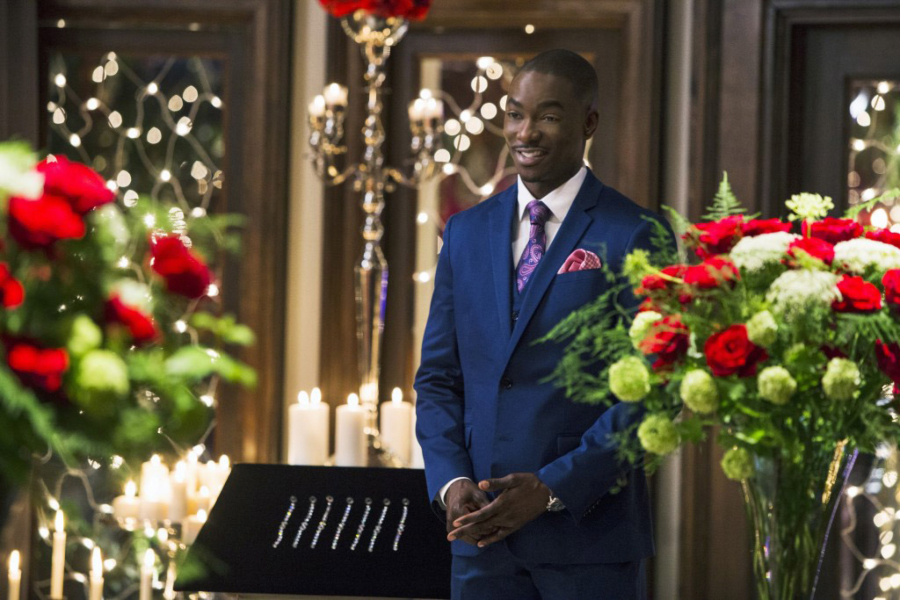That story line continued into this week’s episode, during which we learned that Romeo was “fine,” but never saw him. Darius emerged, having had the back surgery he had long been putting off, and met up with Ruby, an activist and former “Everlasting” contestant whom Darius eliminated — despite having actual feelings for her — because he felt he would never be good enough to be with her. Having Darius run straight to Ruby after his ordeal with the cops felt ham-handed (she sat across from him in a “no justice, no peace” T-shirt) and too obvious a move, without any real contribution to the discussion of racial injustice. By the end of the episode, Darius had seemingly forgotten all about her and was convinced to return to the set of “Everlasting,” in the interest of his post-football career.
Rachel, who has a history of mental illness and ended up in a mental hospital after the incident, was brought back to the “Everlasting” set by Coleman (Michael Rady), her boyfriend and the producer in charge of “Everlasting” at the time of the shooting. Coleman was the one who questioned Rachel’s decision to call the police in the first place (“On two black guys in a Bentley in this town? That won’t end well”), but ultimately went along with Rachel’s plan.
Coleman had been stripped of his executive producer title and duties after the shooting, which we are supposed to believe has not yet made its way to the press even after a week. This week’s episode confirmed one rumor among “UnREAL” fan circles: one contestant is secretly a reporter, and she formed an alliance with Coleman to get information for a story called “Reality TV Kills.”
This led Coleman to “produce” Rachel in the way that she has pried information from many an “Everlasting” contestant. Still drugged out from her time in the mental hospital, Rachel drowsily confessed some of the show’s darkest exploits, including one contestant’s suicide last season. Romeo’s shooting ended up being just a footnote to a long list of the morally questionable actions of “Everlasting’s” producers — one that both Rachel and her boss Quinn wrote off as not being a clear-cut case of racially motivated police violence. Later, as Rachel’s mother tried to convince her to return to treatment, Rachel told Coleman that she had been raped as a child by one of her mother’s patients. The harrowing revelation gives some context to Rachel’s mental health issues, but it, too, felt lost in an episode that didn’t quite know what (or whose) story it wanted to tell.



